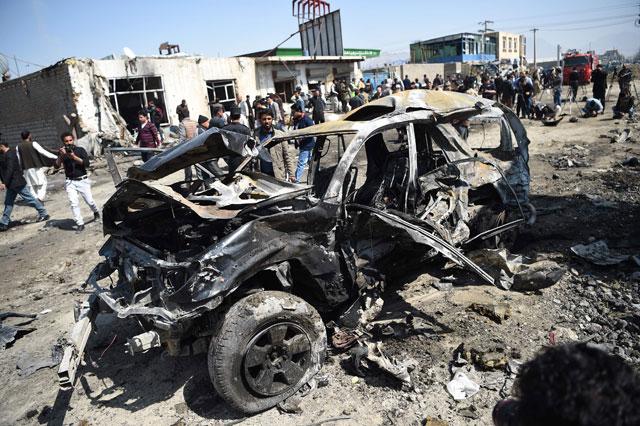The Case for a Decrease in Popular Support of Suicide Bombing in Jordan from 2010-2011
Suicide terrorism has displayed varying levels of popular support throughout the Islamic world. While many reasons may be attributed to the justification of these tactics, there are also many underlying reasons why popular support may go down. Popular support of suicide bombings or targeting civilians to defend Islam showed a 7% percent decrease from 2010-2011 in Jordan. [1] Why was there are such a sharp drop in popular support during this time period? According to Dan Kedmey with Time, “Support for suicide bombers in the name of Islam has dropped in countries that have endured the most suicide bombings.” [2] Is this the case for the reduction of popular support in Jordan between these two years? The Chicago Project on Security and Terrorism reports that there were no suicide attacks in Jordan in either 2010 or 2011. [3] If there were no attacks in Jordan, what are the potential reasons for the drop-in popularity?
While there may not have been a suicide attack in Jordan itself, in the early parts of 2010 there was a high-profile attack that was committed by a Jordanian national in Afghanistan that killed 7 CIA officers. [4] Also killed in this attack was a Jordanian Captain that was a cousin to King Abdulla. [5] This attack on a strategic ally may have created a backlash in the popular support for such attacks and may be a contributing factor in the reduction in popular support. Perhaps a more important question to ask is why did support for suicide terrorism go up in 2010 from 2009 before going back down in 2011? When examining the year by year numbers popular support for terror attacks was the highest in 2005 with 57% supporting suicide bombing. [6] Popular support generally showed a decreasing trend all the way to 2009 where only 12% supported the action. [7] So what happened that in 2009/2010 that could have led to an 8%-point increase?
In late 2009 the seeds of the Arab Spring were beginning to be sewn in Jordan; King Abdullah “dissolves parliament half-way through its four-year term” and “appoints new premier to push through economic reform.” [8] In 2010, pro-reform campaigners are dissatisfied with a new electoral law and pro-government candidates are largely successful in Parliamentary elections which lead to riots. [9] In 2011, as street protests spread across many mid-eastern countries including Tunisia and Jordan, King Abdullah appoints a new prime minister on two separate occasions to enact political reforms and quell the violence. [10] Perhaps the regional tensions and agitation for change lead to the increase in popular support in 2010 and the reforms by King Abdullah and backlash to violence displayed in other countries led to the 7%-point reduction of popular support for suicide bombing in 2011 thereby continuing the trend of an overall reduction in popular support. Which leads us to ask the question, what happened in 2005-2006?
According to the Chicago Project on Security and Terrorism, Jordan experienced 3 suicide terror attacks that killed 57 and wounded 120 people in 2005. [11] Support fell from a high of 57% in 2005 to a low of 12% in 2013 and stabilizing at just 15% in 2014. [12, 13] “In Pakistan–which has been ranked the third-most “bomb-scarred” country in the world by the UK-based NGO Action on Armed Violence — support fell … to 3% [2014], down from a high of 41% in 2004.” [14]
In general, an increase in the use of suicide bombing decreases the popular support for the tactics if they are used within that population. For the Jordanian people suicide tactics most likely were supported for use in Iraq (2005) but when they came home popular support sharply decreased. In 2010, regional tensions that were the prelude to the Arab Spring were most-likely the cause for the increase in support for suicide bombings. However, as the region in general began to spin out of control, popular support decreased / normalized as the Jordanian government enacted reforms and the population did not support a broader revolution. In summary, popular support for suicide terror seems to follow the not in my backyard philosophy where it has widespread support as long as it is used somewhere else. I believe, that the threat of suicide terror coming back home as it did in 2005 played a major factor for the reduction in support from 2010-2011.
Table 1: Support for Suicide Bombing
Can suicide bombing or civilian targets to defend Islam be justified?
% of Muslims who answered Often/Sometimes

Source: Gill, Paul, HLS 805 Lesson 6, https://psu.instructure.com/courses/1941213/assignments/10175819?module_item_id=25087111
Works Cited
[1,6, 7, 12] Gill, Paul (2018) HLS 805: Violence, Threats, Terror and Insurgency: Lesson 6, Written Assignment 2 Weblog post retrieved November 24, 2018 from: https://psu.instructure.com/courses/1941213/assignments/10175819?module_item_id=25087111
[2, 13, 14] Kedmey, Dan (July 1, 2014) Time: Support for Suicide Bombings Plummets In Countries Where They Happen Most. Weblog post retrieved November 24, 2018 from: http://time.com/2946134/support-suicide-bombings-plummets-world-poll/
[3, 11] The University of Chicago (Oct. 12, 2016) CPOST Chicago Project on Security and Terrorism. Weblog post retrieved November 24, 2018 from: http://cpostdata.uchicago.edu/search_results_new.php
[4, 5] Starr, Barbara (January 5, 2010) CNN: Source: Jordanian double-agent killed 7 CIA officers in suicide blast. Weblog post retrieved November 24, 2018 from: http://www.cnn.com/2010/US/01/04/bombing.cia/index.html
[8, 9, 10] BBC (June 5, 2018) BBC News: Jordan profile – Timeline. Weblog post retrieved November 25, 2018 from: https://www.bbc.com/news/world-middle-east-14636713

